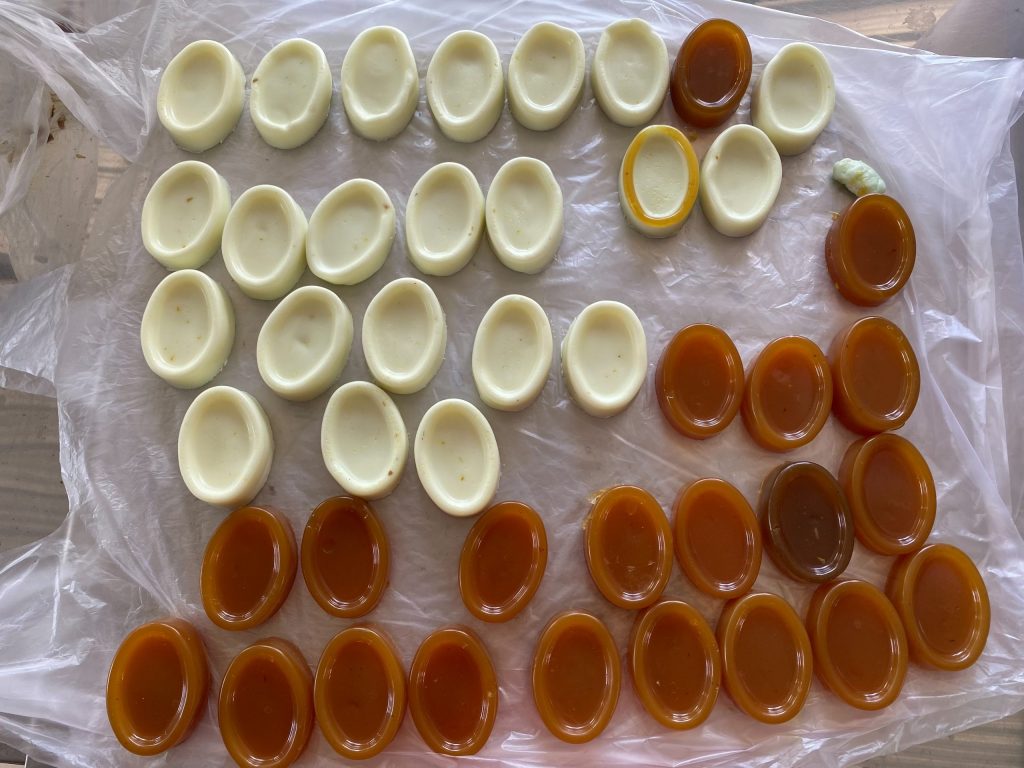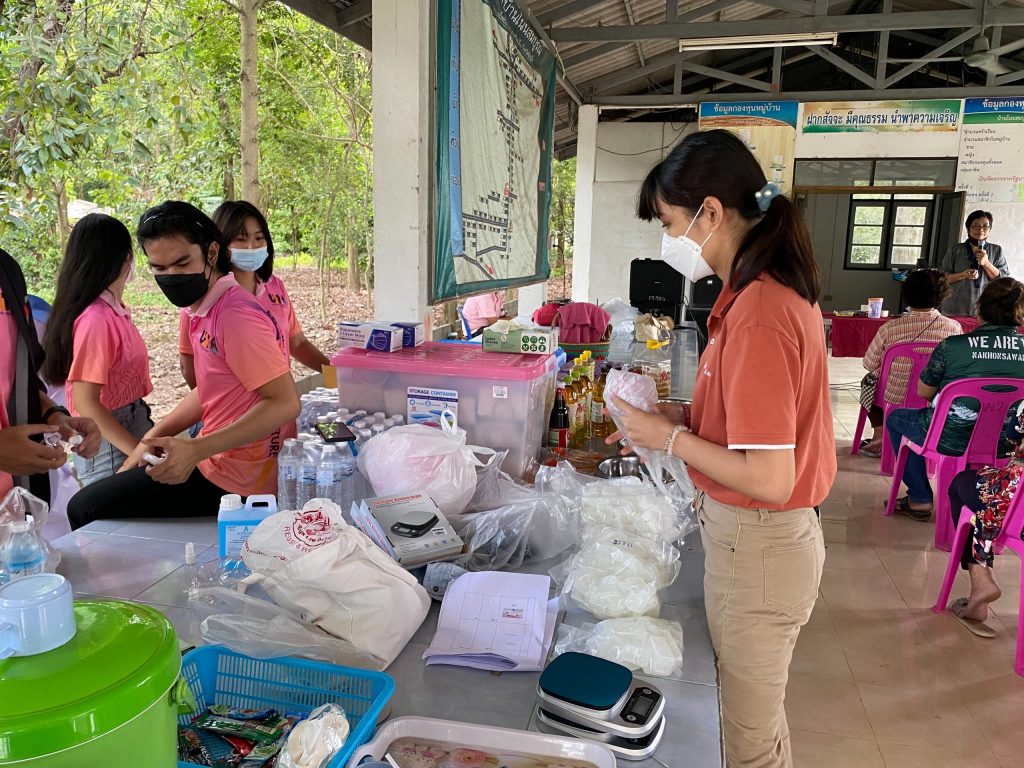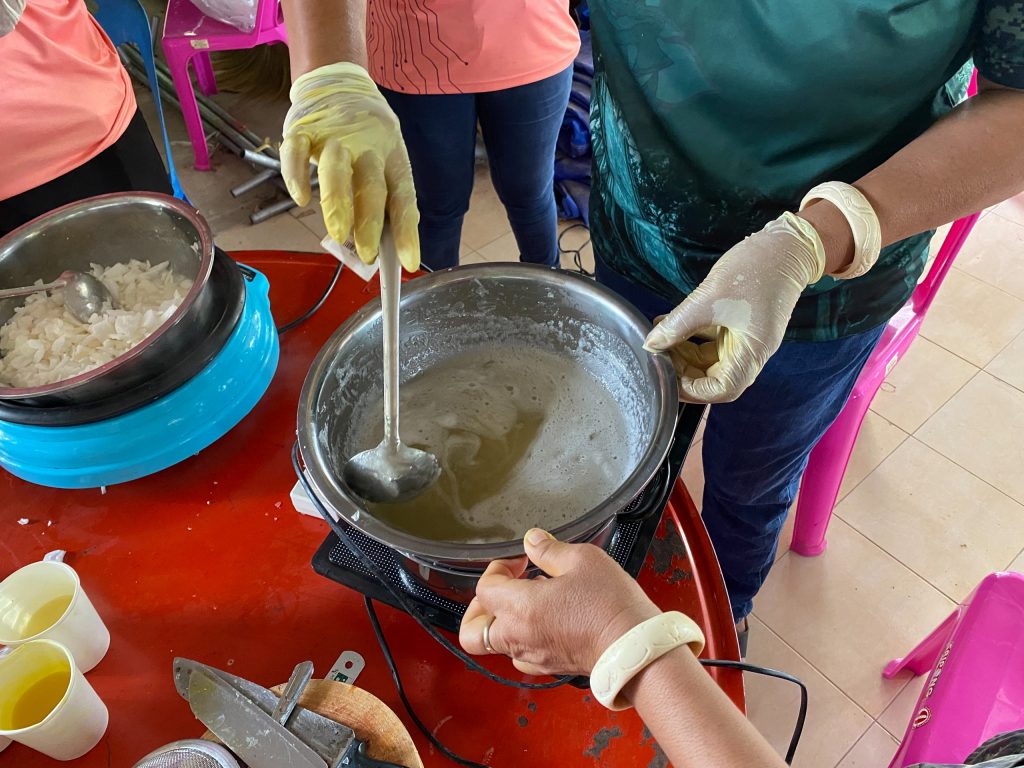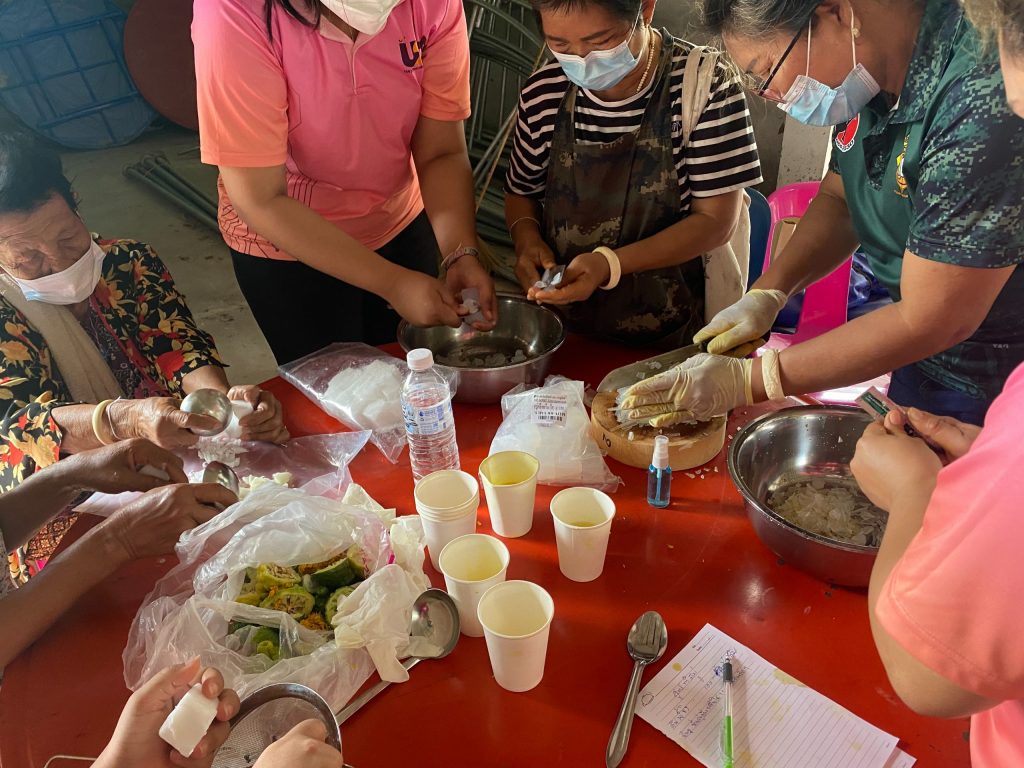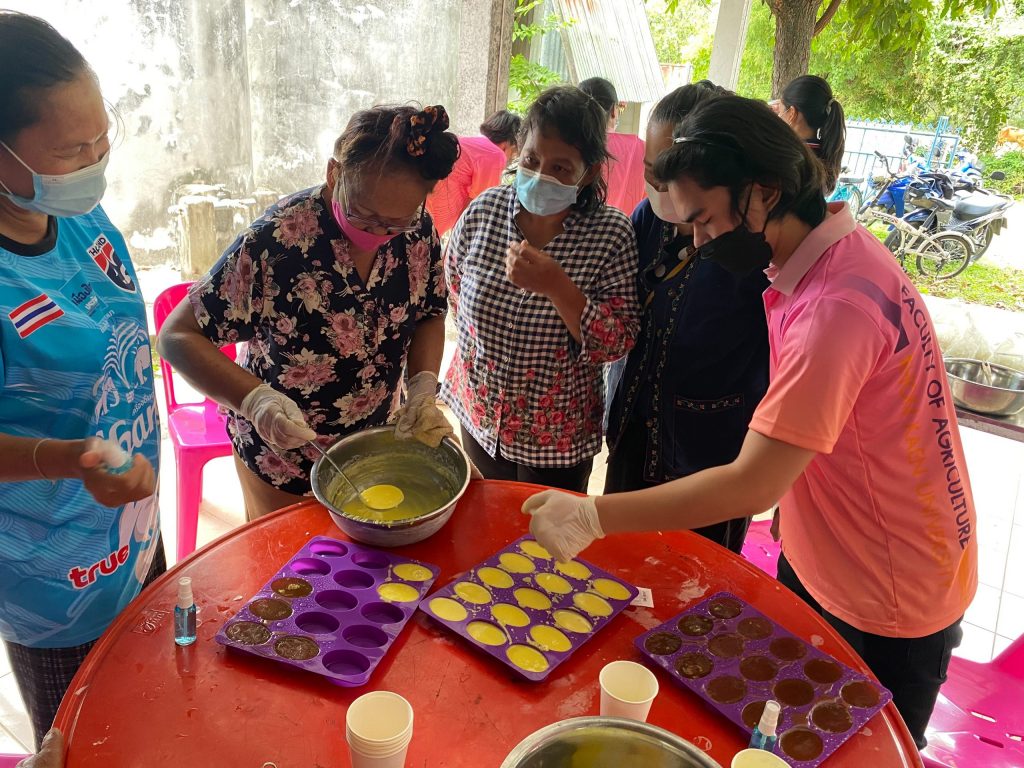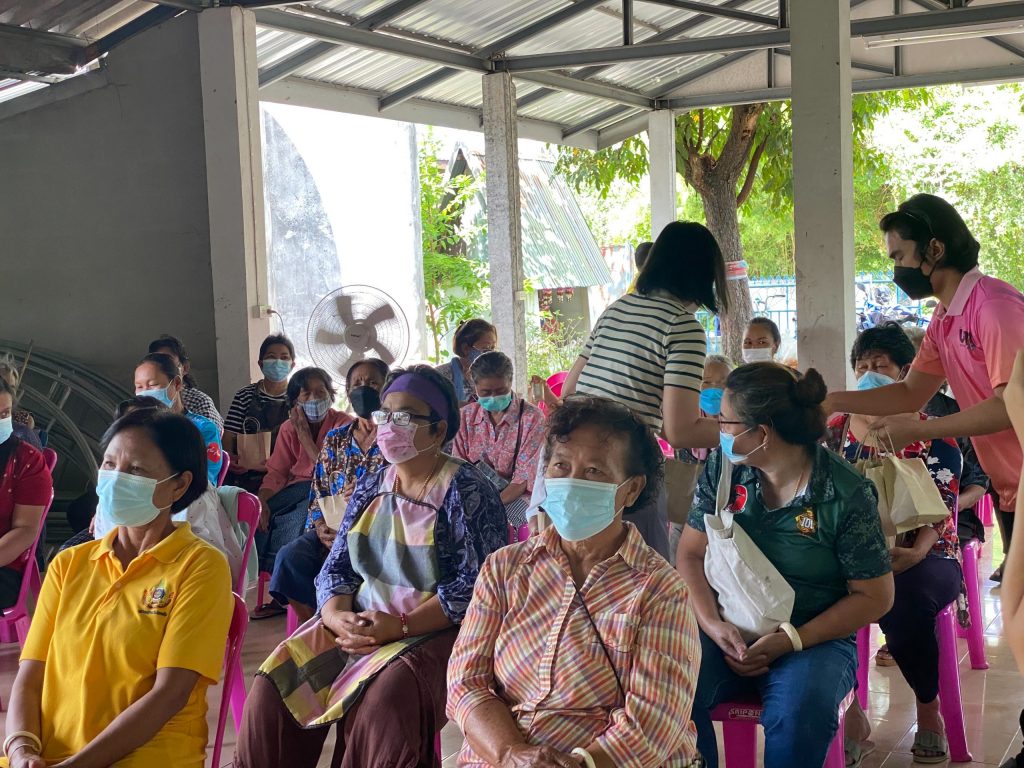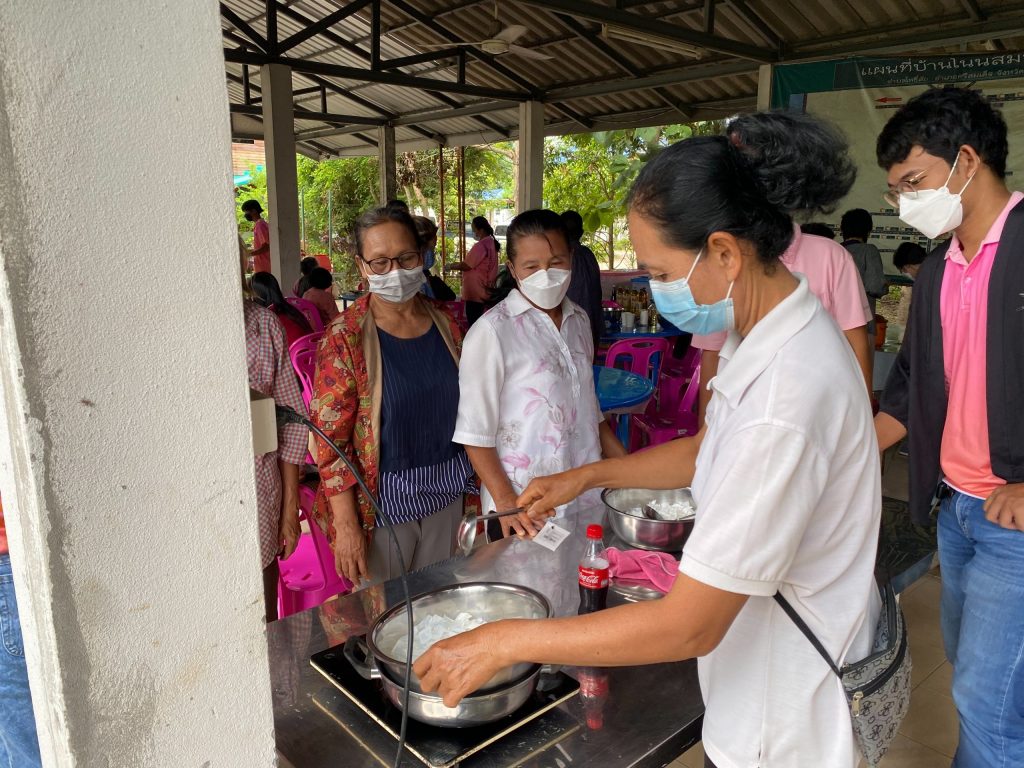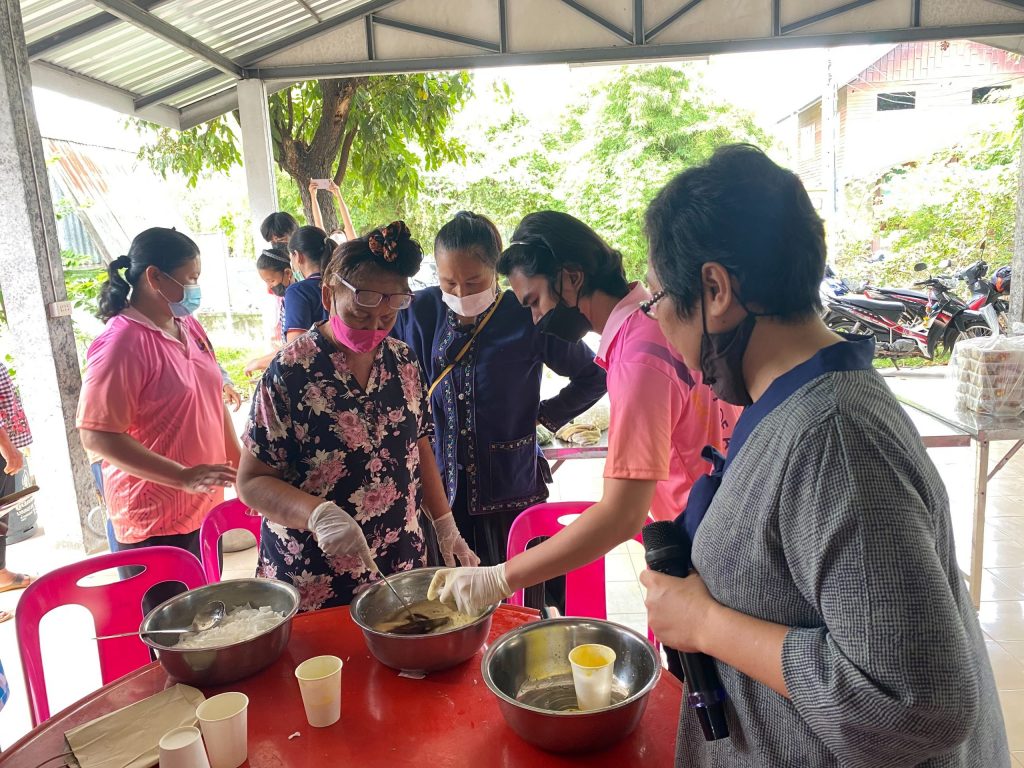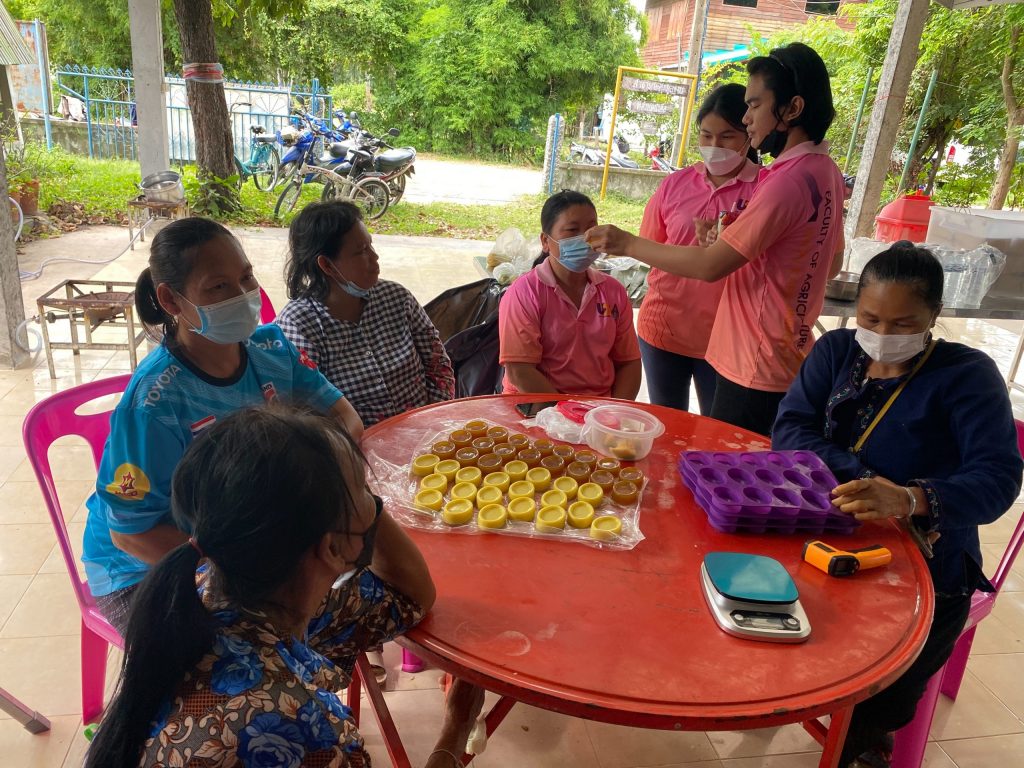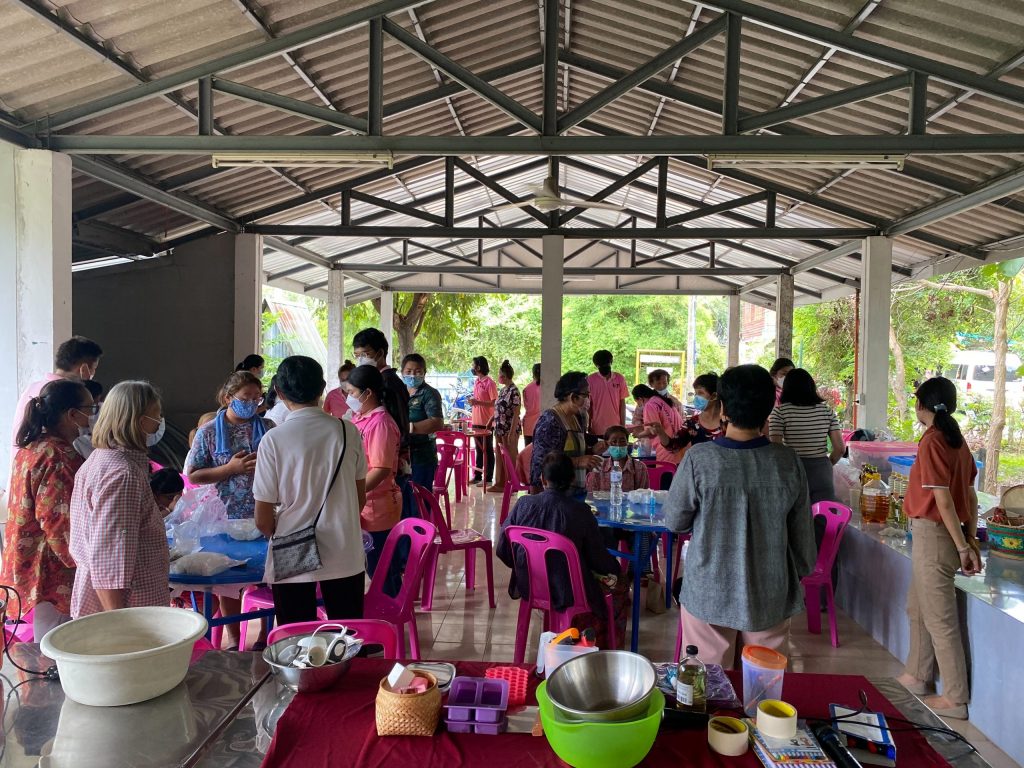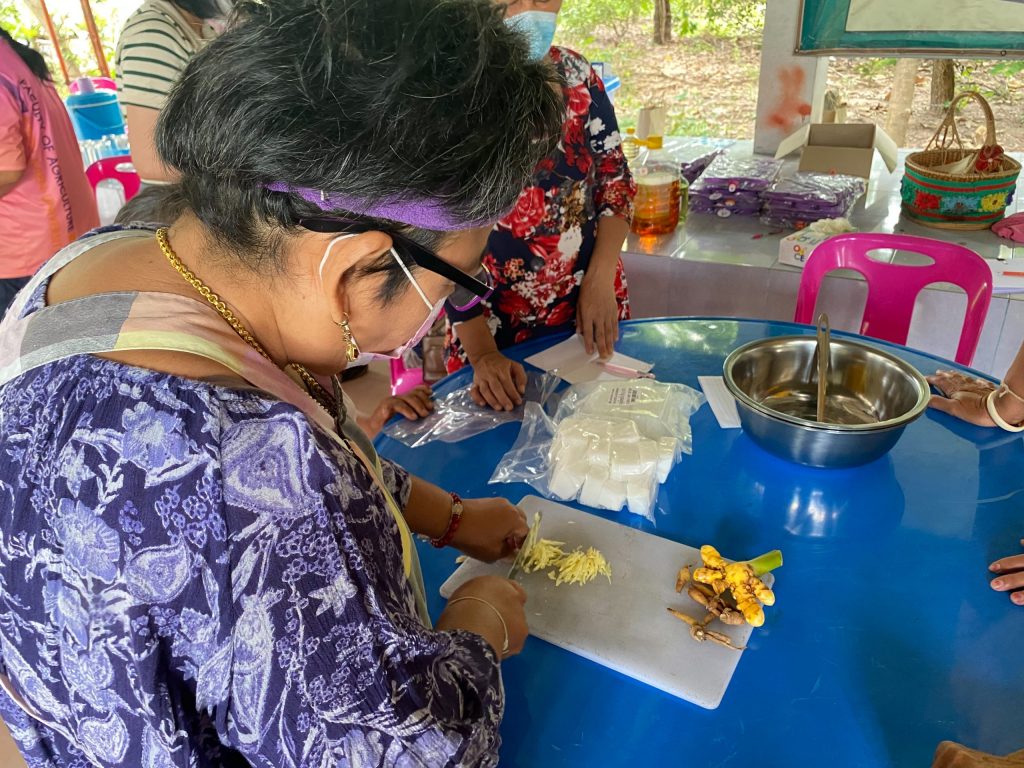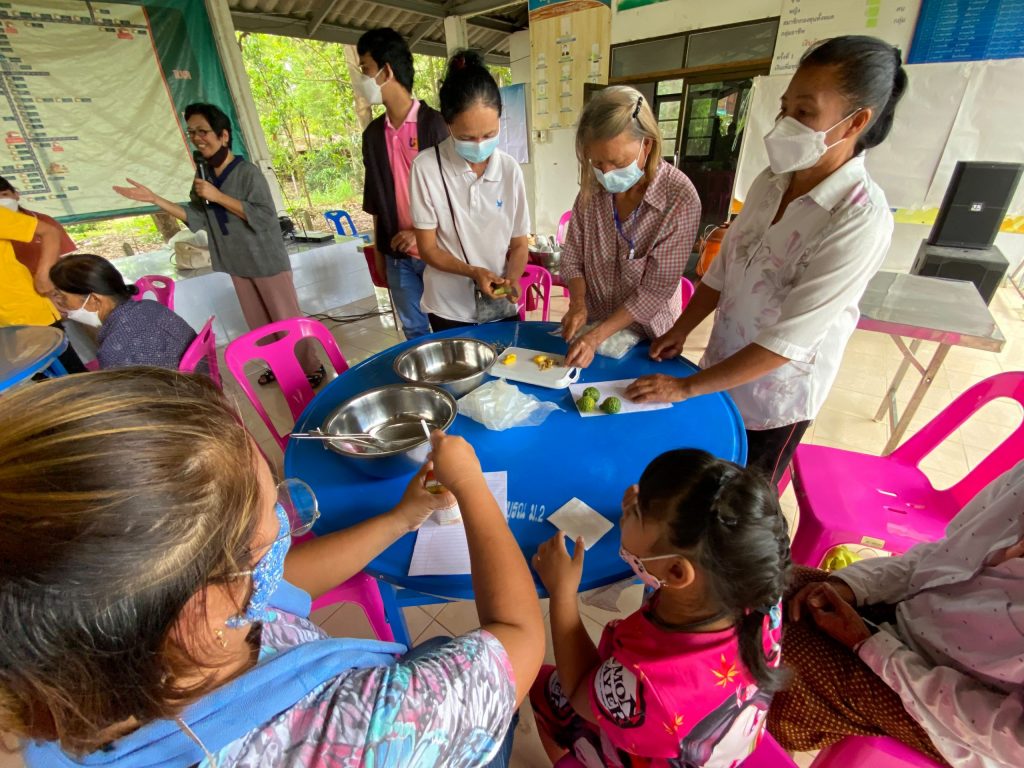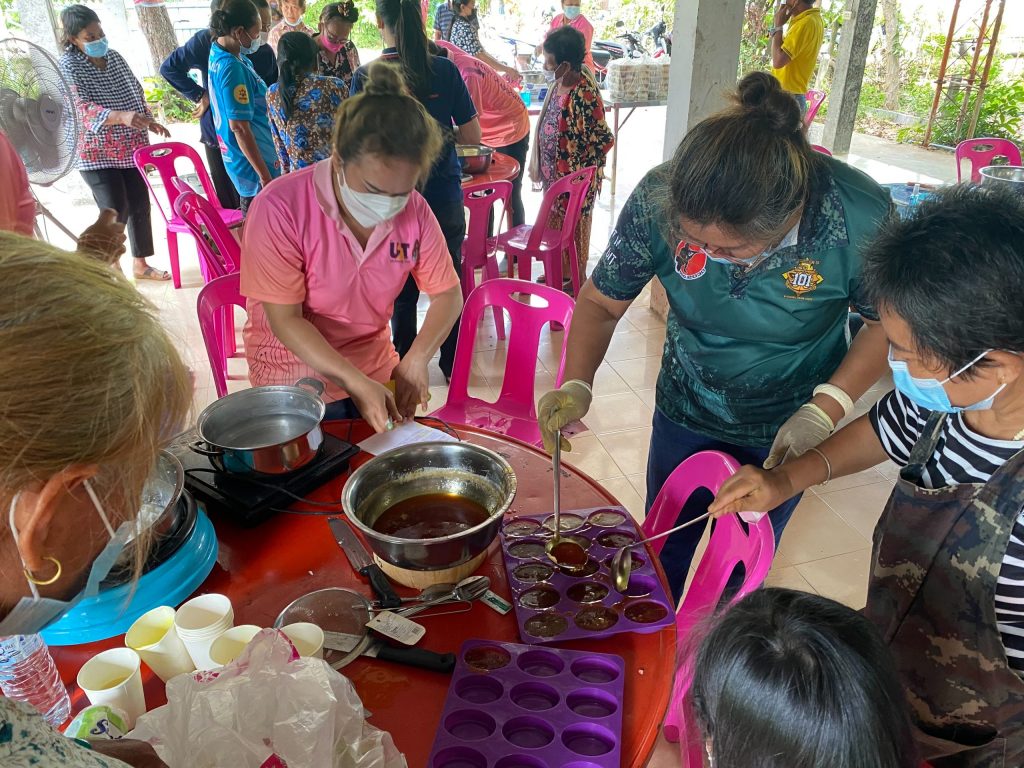August 30, 2021 – the implementers of Integrated Sub-district Socio-Economic Upgrading Project (University to Tambon) led by Ajarn Sukalaya Choenkhwan, Ph.D. and Khun Parichat Hanchaiyana, Manager of Kalasin Nature’s Friends Association ran a workshop on site at Ban Nonsomboon, Phosai Sub-district, Srisomdet District, Roi-et Province, on soap making from natural oils in order to promote a supplementary occupation for the villagers. Other objectives were to increase the villages’ knowledge in processing local resources into household consumption materials and items so that the villagers can reduce their expenditures. At the same time, the workshop aimed to open marketing opportunity, add to the values of community products, build occupations for the villagers, reduce unemployment, and build good relationships among the people.

The workshop arose from the requirements of the housewife and the elderly groups in the community to spend their time fruitfully and use the resources in the locality to produce household consumption materials and utensils. The training activities featured a talk by Khun Parichat Hanchaiyana on fundamental soap making, the value of soap on skin health, and the use of herbs as the ingredient for soap making; and the soap making practice. The villagers trained to make soap in 3 formulas: glycerin soap, cold process for essential-oil soap, and hot process for essential-oil soap. The natural oils used are palm oil, soybean oil, sesame oil, olive oil, coconut oil, and rice bran oil. The oils are mixed with certain herbs and plants available in the locality such as jasmine flower, lime, kaffir lime, tamarind, galingale, turmeric, and Aloe Vera.

The project was grateful to Khun Parichat Hanchaiyana for being the workshop trainer, and to the villagers of Ban Nonsomboon, Phosai Sub-district, Srisomdet District, Roi-et Province for their participation. It was hoped that the workshop would be useful for the villagers and that they would disseminate the knowledge they obtained to other nearby communities to create income for their families, especially under the present spread of Covid-19.
